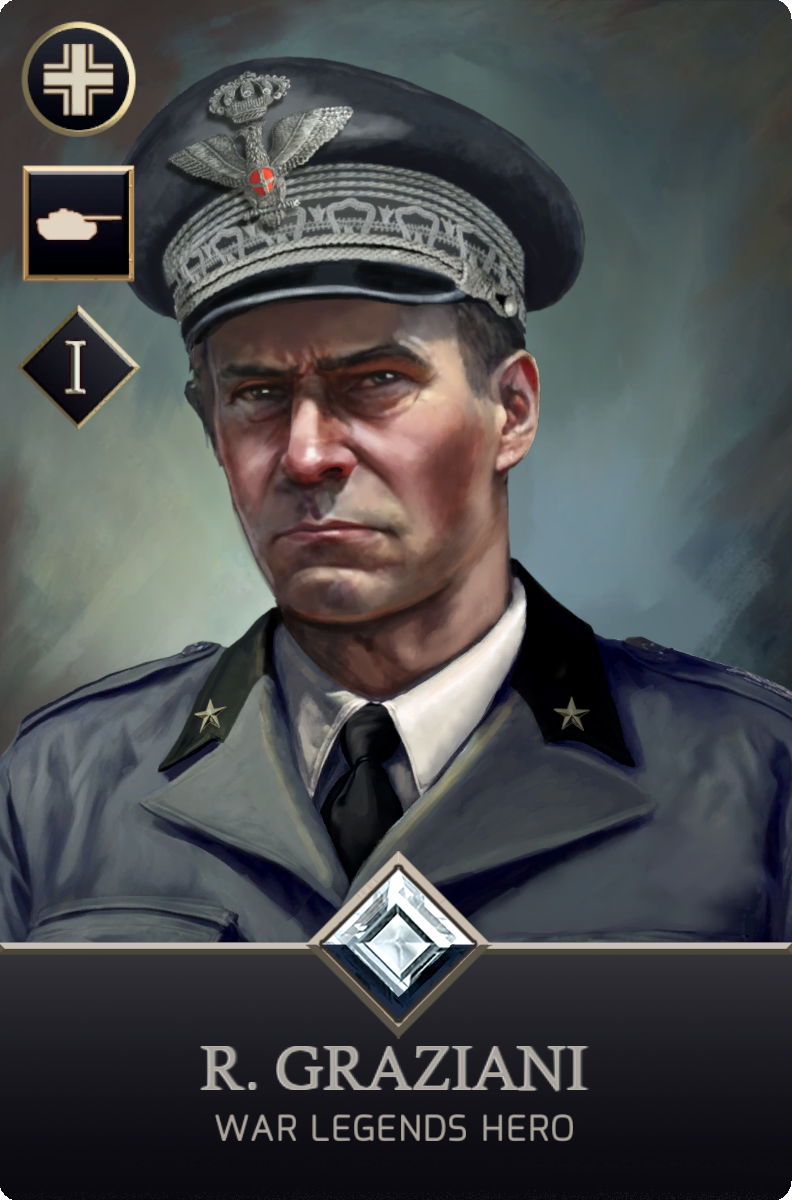


Hero Background
Rodolfo Graziani was born on 11 August 1882 in Filettino, Italy. In 1903 he started a military career and joined the Royal Army. In 1908 he took part in the Italo-Turkish War. He also took part in the First World War where he was promoted Colonel, being the youngest in the Royal Army to achieve this honor.
In 1930, he was appointed vice-governor of Cyrenaica and commander of the Italian forces in Libya. He served there until 1934. During those four years, he suppressed and pacified the Senussi rebellion. Because of this, he was promoted to general in 1932. In this so-called "pacification", he was responsible for the construction of several concentration and labor camps, where thousands of Libyan prisoners died by hanging, shooting or by the poor conditions of these camps. His actions earned him the nickname "the butcher of Fezzan" among the Arabs. But the Italians called him ''the Peacemaker of Libya''. In 1935, Graziani was appointed governor of Italian Somalia.
In the course of the second war against the Ethiopians in 1935, he was commander of the southern front and scored several successes against the opposing troops. After the end of the war, Graziani was appointed Viceroy of Ethiopia and Governor General of Shewa/Addis Ababa in June 1936.
On 19 February 1937, during an official ceremony, two Eritrean nationalists attempted to assassinate Graziani, but the attempt failed and Graziani survived with serious injuries. As a result, the viceroy launched a violent repression throughout the territory, for which he became known as the 'Butcher of Ethiopia'. He also authorized the massacre of the ancient monastery of Debre Libanos because he suspected the monks of having previously tried to assassinate him. In 1938 he was appointed governor of Italian East Africa.
He returned to Libya in 1939 with the appointment of supreme commander of the Italian forces in North Africa.
After Italy's participation in World War II, Rodolfo Graziani launched the offensive against British troops in Egypt from Libya in September 1940. However, because the Italian army's tanks were unprepared for the desert and the lack of supplies, he suffered a number of continuous defeats and the loss of more than 130,000 troops to British troops under General Wavell during Operation Compass, precipitated German intervention by commanding the Afrika Korps. Grazziani resigned in 1941.
Faced with the landings in Sicily and the unstoppable Allied offensive on Italy, the Fascist Grand Council dismissed Mussolini on 25 July 1943 and a government was formed in Italy, which surrendered to the Allied armies a few months later. The Germans occupied northern Italy, where Benito Mussolini, Graziani and some of his followers, under the protection of the German army, established the ''Republic of Salò''. As Minister of War between 1943 and 1945, Graziani was in charge of organizing the army of the Republic with the remnants of Italian units still loyal to Mussolini.
In April 1945, the Italian Social Republic surrendered to the Allies, and Rodolfo Graziani was captured by partisans of the new Italian government in Rome. In the post-World War II trials, Rodolfo Graziani was sentenced to nineteen years in prison, but due to his poor health he was released in August 1950.
Graziani died in Rome on 11 January 1955, aged 72.








